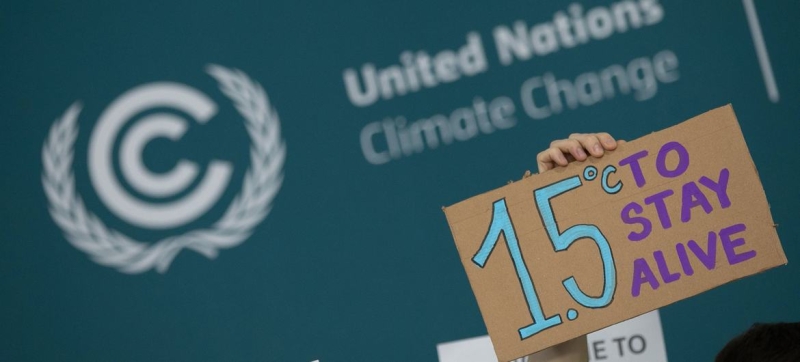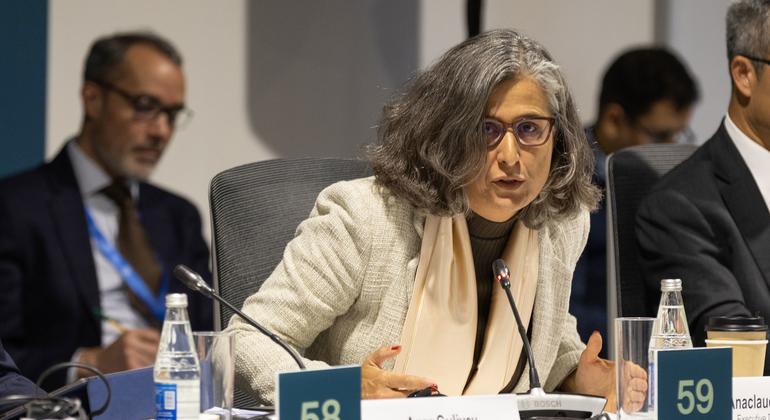
The focus of the talks in Baku is to agree on a new climate finance target that will provide every country – especially the most vulnerable – with the means to take bolder climate action. COP29: Climate Finance Talks and Cities Day Climate and Environment
A “critical moment” in climate finance negotiations is approaching at the Baku Climate Conference. One of the questions is how much developed countries should pay developing countries and what form these payments should take. Meanwhile, the general topic of the day on Wednesday is urbanization, transport and tourism.
Will a breakthrough be achieved in the negotiations?
Recall that the focus of the talks in Baku is agreeing on a new climate finance target that will provide each country – especially the most vulnerable – with the means to take more decisive climate action. We are talking about trillions of dollars that developing countries need to mitigate the effects of climate change and adapt to new conditions.
The Chairman of the Alliance of Small Island States, Cedric Schuster, said yesterday that the minimum level of allocations for small island developing states should be $39 billion per year and $220 billion per year for least developed countries in grant equivalent. “Any texts that do not include these aspects will not be accepted by these groups,” he stressed in a conversation with journalists.
Read also:
Signal to COP-29 participants from G20 countries: the target in the field of climate finance must be agreed
Sierra Leone’s Minister for Environment and Climate Change, Jiwo Abdulai, has drawn attention to an issue that worries many developing countries. “Stop using the word ‘donor,'” he said. “That word implies charity. There is a climate debt that needs to be paid. It’s about lives and livelihoods. Our people are paying for it with their lives.”
Discussions have also focused on the very definition of a “developing country.” Some negotiators insist that China or some Gulf states no longer fit into that category, given the growth of their economies since the adoption of the UN Framework Convention on Climate Change in 1992.
Urbanization, Transport, Tourism
In addition to the tense negotiations that take place behind closed doors, the UN Climate Conference also includes hundreds of events and presentations. Today at COP29 in Baku is Urbanization, Tourism and Transport Day. The common thread in numerous speeches by heads of UN agencies, government representatives at various levels and civil society is the idea that it is urgently necessary to reduce emissions, adapt to a changing climate, mitigate the effects of the crisis, and protect the population from extreme weather events.
Cities are both victims and perpetrators of climate change: not only are they disproportionately affected by its impacts, but they are also responsible for generating a significant share of global emissions. Half of the world’s population lives in cities today, and more than 2.4 billion more are expected to move to urban conurbations in the next 20 years. According to the latest UN-Habitat report, more than two billion people currently living in cities could be exposed to an additional temperature rise of at least 0.5 degrees Celsius by 2040. At the same time, climate action has not yet matched the scale and intensity of the challenges cities face.
As Anaclaudia Rossbach, Executive Director of UN-Habitat, said on Wednesday at COP29 in Baku, chaotic urban development poses a threat to biodiversity, the environment, food security, leads to social fragmentation and deterioration of the financial situation. According to her, the construction sector accounts for 40 percent of greenhouse gas emissions, and to achieve the targets set out in the Sustainable Development Goals, which must be completed by 2030, it is necessary to build 96 houses a day. She emphasized that adequate funding and cooperation are needed to address these issues. “We must chart a common path and follow it in order to harmoniously address the social, climate and other challenges that cities face,” Anaclaudia Rossbach noted. – Yes, we need more funding for cities, we need to plan better and prioritize better.”

Space in cities is limited, she continued, and it must be used as efficiently as possible and with due regard for the environmental consequences. “We must take care of people, and people must take care of the planet. No one should be left behind,” Anacláudia Rossbach concluded her speech.
Today, as the speakers noted with regret, the situation is moving in the opposite direction. Inger Andersen, Executive Director of the United Nations Environment Programme (UNEP), recalled that 52 percent of all greenhouse gas emissions come from 25 megacities. At the same time, according to the latest UNEP report, emissions increased by 1.3 percent in 2023. “Although they should have decreased,” she added. To keep warming within 1.5°C, updated Nationally Determined Contributions – the commitments that each country makes – should provide for a reduction in greenhouse gas emissions by 42 percent by 2030 and by 57 percent by 2035. “This is a huge task. But UNEP’s Emissions Gap Report 2024 says that it can be achieved,” Andersen emphasized.
Selwyn Hart, the UN Secretary-General’s Special Adviser on Climate Action and Just Transition, speaking at COP-29 on Wednesday, reminded that humanity today has all the necessary knowledge and tools to effectively combat climate change. “The revolution in the transition to renewable energy is already happening. It is unstoppable,” he said. “But the question remains whether the speed with which it is happening will allow us to prevent its worst effects. And the second question is whether it will be fair enough to reduce inequality within and between countries.”
The results of the negotiations, which are ongoing in Baku, will help answer the last question. As Cecilia Kinuthia-Njenga, Director of the Division of Intergovernmental Support and Collective Progress of the UN Framework Convention on Climate Change, noted, each delegation came to COP-29 with its own aspirations and hopes. “In multilateralism, the results are sometimes different from what each country could have imagined. And this underlines the importance of flexibility, cooperation and a willingness to adapt to changing circumstances and international relations.”
